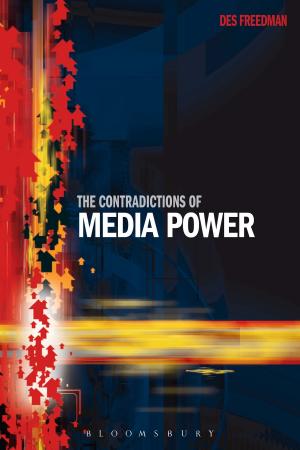Genocidal Nightmares
Narratives of Insecurity and the Logic of Mass Atrocities
Nonfiction, Social & Cultural Studies, Political Science, International, International Security, History| Author: | ISBN: | 9781628920734 | |
| Publisher: | Bloomsbury Publishing | Publication: | November 20, 2014 |
| Imprint: | Bloomsbury Academic | Language: | English |
| Author: | |
| ISBN: | 9781628920734 |
| Publisher: | Bloomsbury Publishing |
| Publication: | November 20, 2014 |
| Imprint: | Bloomsbury Academic |
| Language: | English |
This book offers a novel and productive explanation of why 'ordinary' people can be moved to engage in destructive mass violence (or terrorism and the abuse of rights), often in large numbers and in unexpected ways. Its argument is that narratives of insecurity (powerful horror stories people tell and believe about their world and others) can easily make extreme acts appear acceptable, even necessary and heroic. As in action or horror movies, the script dictates how the 'hero' acts. The book provides theoretical justifications for this analysis, building on earlier studies but going beyond them in what amount to a breakthrough in mapping the context of mass violence. It backs its argument with a large number of case studies covering four continents, written by prominent scholars from the relevant countries or with deep knowledge of them. A substantial introduction by the UN's Special Advisor on the Prevention of Genocide demonstrates the policy relevance of this path-breaking work.
This book offers a novel and productive explanation of why 'ordinary' people can be moved to engage in destructive mass violence (or terrorism and the abuse of rights), often in large numbers and in unexpected ways. Its argument is that narratives of insecurity (powerful horror stories people tell and believe about their world and others) can easily make extreme acts appear acceptable, even necessary and heroic. As in action or horror movies, the script dictates how the 'hero' acts. The book provides theoretical justifications for this analysis, building on earlier studies but going beyond them in what amount to a breakthrough in mapping the context of mass violence. It backs its argument with a large number of case studies covering four continents, written by prominent scholars from the relevant countries or with deep knowledge of them. A substantial introduction by the UN's Special Advisor on the Prevention of Genocide demonstrates the policy relevance of this path-breaking work.















